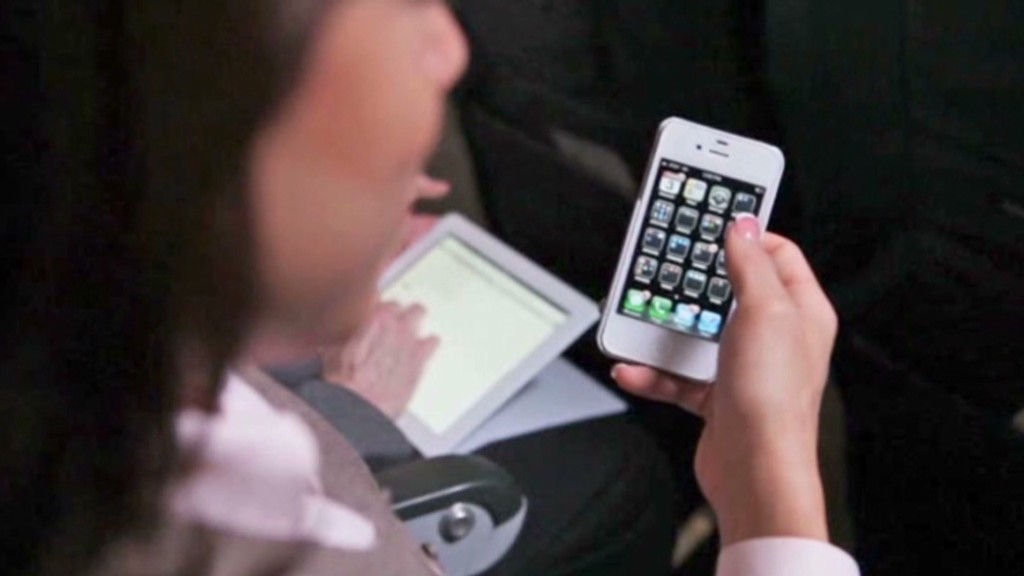
After paying $16 for a flight's worth of crappy Wi-Fi service, the thought might have crossed your mind to sue Gogo.
That's exactly what American Airlines (AAL) just did. The nation's largest airline filed a lawsuit against Gogo, which could could clear the path for American to change its in-flight Wi-Fi provider for a quarter of its fleet.
The lawsuit aims to get a judge to give Gogo official notice that American has a better offer from a competitor.
American Airlines said that ViaSat, which powers Wi-Fi on United Airlines (UAL), JetBlue (JBLU) and Virgin America, is significantly faster than Gogo's service. If American does get out of its Gogo contract, it would affect about 200 of its 800 aircraft that have Gogo installed.
"After carefully evaluating the new technology and services in the marketplace, American ... recently notified Gogo that ViaSat offers an in-flight connectivity system that materially improves on Gogo's air-to-ground system," American said in its lawsuit, filed in Tarrant County, Texas, district court.
Shares of GoGo (GOGO) fell by as much as 43% Tuesday. ViaSat's (VSAT) stock, by contrast, is up 10%.
"We have no comment on the merits of this litigation, but we would like to note that American is a valued customer of ours and that we look forward to resolving the disagreement," a Gogo spokesman said in a statement.
Related: Gogo says speed boost coming to Wi-Fi on planes
Both American and Delta have contracts with Gogo that last through 2018. But according to the terms of American Airlines' contract, once it submits official notice that it has a better offer, Gogo will get a certain amount of time to give American a proposal to persuade the airline to stay.
American Airlines said that it gave Gogo notice earlier this month, but Gogo denied that American's submission was valid. So American filed suit to get the clock started officially for Gogo to submit its proposal.
Gogo said that proposal will include 2Ku, Gogo's newest technology that uses satellites and complex onboard antennas to deliver a much better Wi-Fi experience for flyers. Airplanes equipped with 2Ku will receive a 70 megabit-per-second connection, which is about four times faster than your average home broadband connection.
Current Gogo planes are using outdated 3G connections that deliver about 9.8 Mbps to a plane -- split among a hundred passengers.
Gogo has said the 2Ku rollout will be slow, however. Only a handful of planes will be equipped with the new technology by the end of this year. The bulk of the installations will take place in 2017 and 2018.
"We believe that 2Ku is the best performing technology in the market, and look forward to discussing our offer with American," Gogo said.

